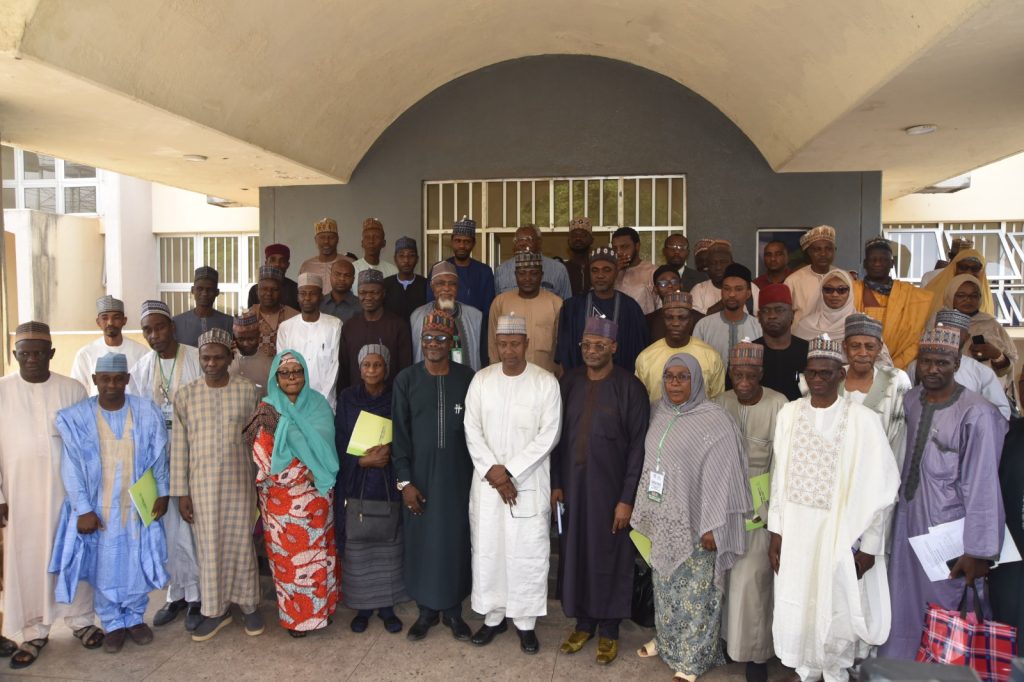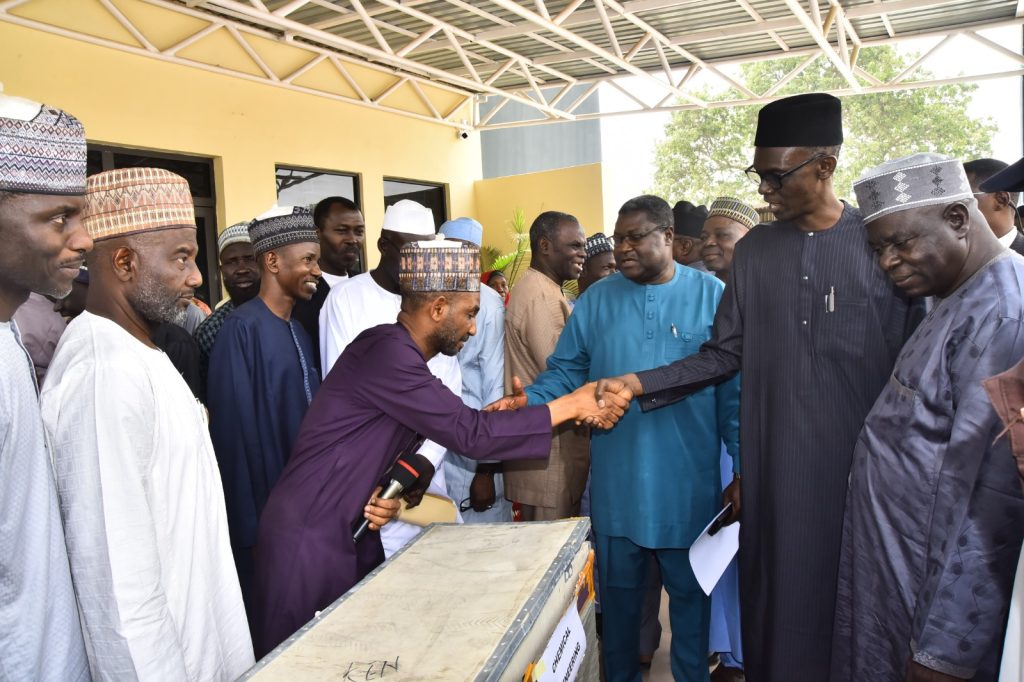Vice-Chancellor briefs Minister of Education on ABU sustainability plans
The Vice-Chancellor, Ahmadu Bello University, Prof. Kabiru Bala, has briefed the Honourable Minister of Education, Prof. Tahir Mamman, SAN, on the institution’s strategic direction, saying that its current sustainability plan was informed by the desire to continue to pursue its core businesses of excellence in teaching, research, and community service.

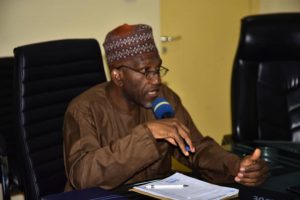
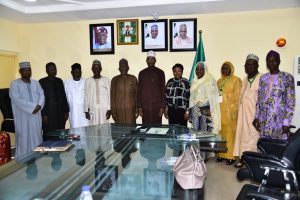
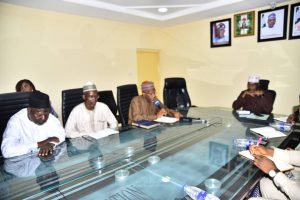
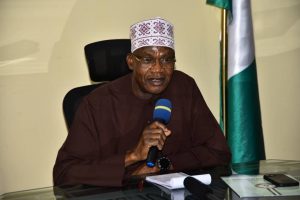
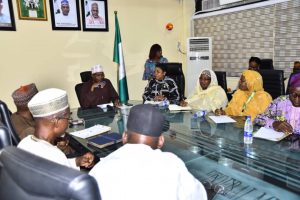
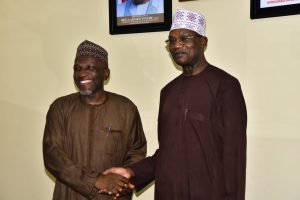
Prof. Bala had recently led a five-member delegation on a courtesy visit to the Federal Ministry of Education in Abuja where they had a discussion with the Minister on the state of the University.
The Vice-Chancellor told the Minister, who is an alumnus of the University, that ABU had attained an enviable status in the comity of global citadels of learning, and it is still growing.
He also stressed that going forward in this fast changing and dynamic world, there is a need for long-term plans with clearly defined objectives, the central focus of which should be sustainability.
The Vice-Chancellor further informed the Minister that the University has at present a total of 18 faculties, including a College of Medical Sciences and a faculty-based Business School, in addition to being the most national and international institution in Nigeria as evident by the JAMB awards the University won for three consecutive times on account of that standing.
Bala described the University’s Agriculture/Veterinary Complex as the largest in Africa, arguing that if the institution’s agricultural potential is well harnessed, ABU could feed its entire community and Zaria environs.
He said that ABU is always glad to have a strong Faculty of Agriculture in addition to having four formidable agricultural research institutes that include the famous Institute for Agricultural Research (IAR), National Animal Production Research Institute (NAPRI), Division of Agricultural Colleges (DAC), and National Agricultural Extension Research and Liaison Services (NAERLS).
The Vice-Chancellor further informed the Minister that the University had since recognised the importance of adopting long-term strategies towards attaining financial sustainability.
Prof. Bala explained that the strategies evolved by the University included grants seeking nationally and internationally, saying that in the past six years the grants attracted to the institutions had increased considerably.
He said that given the significance of grants attraction, the University had continued to train its academic staff members regularly on research proposal writing and that the institution had recently strengthened its advancement directorate to the Directorate of University Advancement and International Education (DUA&IE) to specifically take care of internationalisation.
Bala explained that the University had also taken the advantage of its valuable assets such as land resources in Abuja, Kano, and Zaria for revenue generation purpose.
The Vice-Chancellor said that the institution’s Public Private Partnership Unit is currently working on proposals to use its Abuja land to build a five-star hotel in addition to overseeing the completion of the ongoing hotel project belonging to the University on Sokoto Road in Kano.
He also disclosed that the institution’s land in Zaria Government Reserved Area (GRA) will also be converted to a shopping complex with some apartments to be rented out for occupation.
Bala further said that the launch of the ABU Endowment Foundation is also part of the institution’s sustainability plans as most universities abroad such as Harvard and Cambridge rely largely on foundations they established for financial sustainability.
The University through the Directorate of University Advancement and International Education (DUA&IE), he explained, is mobilising its alumni to give back to the institution with the launch of its annual alumni giving, an effort that is fast gaining traction.
“You see, we are citing the best examples of the Massachusetts Institute of Technology (MIT) and Harvard University for understanding. So, we are approaching high networths and friends of the University to join hands in the development of the Foundation”, he said.
The Vice-Chancellor also listed other strategic efforts for the University’s financial sustainability to include offering of consultancy services, using the institution’s over 700 hectares of land and dam for integrated farming, as well as offering marketable and innovative courses and services.
Responding, the Honourable Minister of Education, Prof. Tahir Mamman, commended the Vice-Chancellor and the University for evolving such strategic plans to make the institution financially stable given the funding difficulty by the Federal Government.
“All the areas you so highlighted are no doubt good sources of generating funds. You have to further position yourselves very well to remain on course; I am really happy that you are looking at that direction; and we will encourage you”, the Minister said.
The Minister pointed out that farming alone can, to a large extent, complement the University’s finances, citing the example of Afe Babalola University, a private university, that is utilising its 1000 hectare of farmlands to feed the institution and its surrounding communities.
The minister was assisted by the Permanent Secretary, Federal Ministry of Education, Mrs. Didi Esther Walson-Jack alongside other top officials of the Ministry in receiving the Vice-Chancellor and members of his delegation.
Members of the Vice-Chancellor’s delegation included the Registrar, Malam Rabiu Samaila; the Director, Directorate of University Advancement and International Education (DUA&IE), Prof. Sani Abba Aliyu; the Director, Public Affairs Directorate, Malam Auwalu Umar; and the Vice-Chancellor’s Special Assistant, Malam Auwal Yusuf Mohammed.
………………
Public Affairs Directorate,
Office of the Vice-Chancellor,
Ahmadu Bello University, Zaria
Monday, 15th April, 2024


